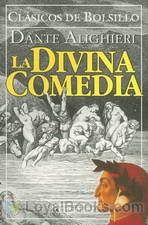|
Books Should Be Free Loyal Books Free Public Domain Audiobooks & eBook Downloads |
|
|
Books Should Be Free Loyal Books Free Public Domain Audiobooks & eBook Downloads |
|
Author Collection |
|---|
By: Dante Alighieri (1265-1321) | |
|---|---|
 (Italian) La Divina Commedia
(Italian) La Divina Commedia
La Divina Commedia, originalmente Commedìa, é un poema di Dante Alighieri, capolavoro del poeta fiorentino, considerata la più importante testimonianza letteraria della civiltà medievale e una delle più grandi opere della letteratura universale. È diviso in tre parti chiamate cantiche: Inferno, Purgatorio, Paradiso; il poeta immagina di compiervi un viaggio ultraterreno. Il poema, pur continuando i modi caratteristici della letteratura e dello stile medievali (ispirazione religiosa, fine morale,... | |
 (Spanish) Divina Comedia
(Spanish) Divina Comedia
A la mitad del viaje de nuestra vida, me encontré en una selva oscura por haberme apartado del camino recto. ¡Ah! ¡Cuan penoso me sería decir lo salvaje, áspera y espesa que era esta selva, cuyo recuerdo renueva mi temor! Era tan triste que la muerte no lo es tanto. Pero para hablar del bien que alli encontré, revelaré las demás cosas que he visto... (del Canto primero del infierno). Manuel Aranda y Sanjuan (1845-1900) ha sido un prolífico traductor de obras técnicas, pero también literarias... | |